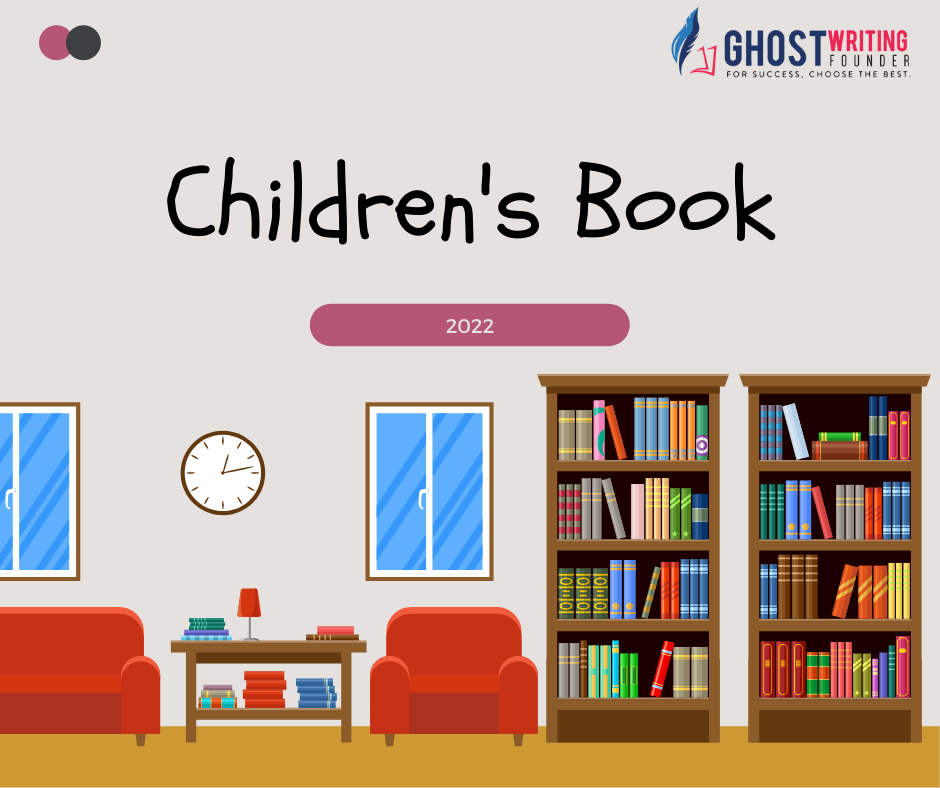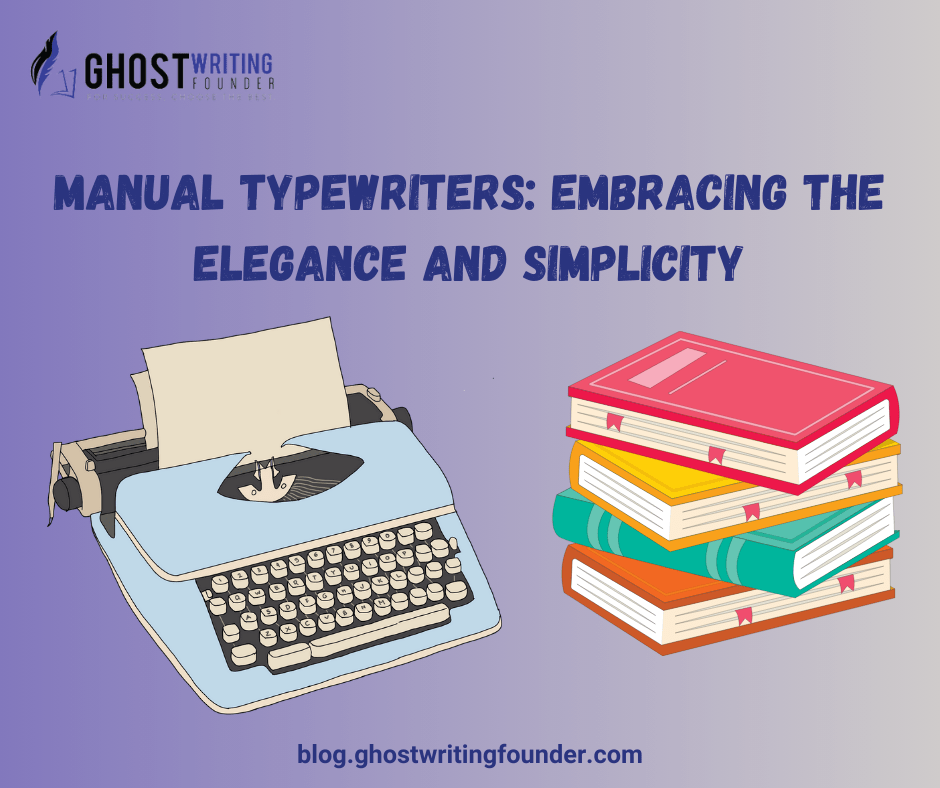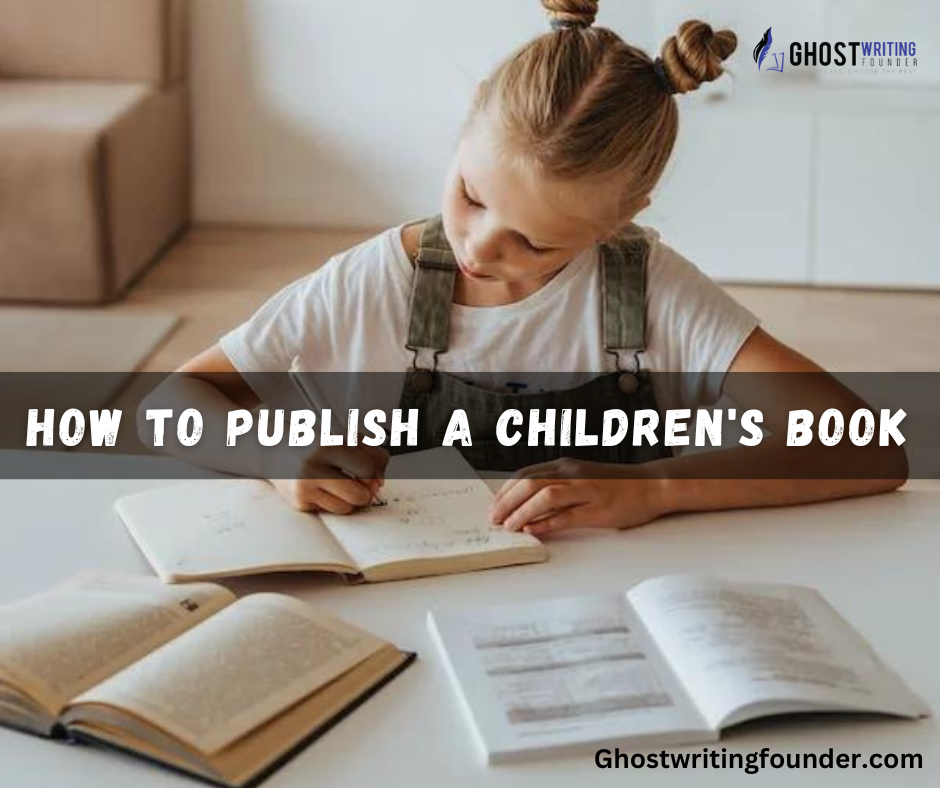![How To Write The Perfect Book Title [Examples Included]](https://blog.ghostwritingfounder.com/wp-content/uploads/2024/02/How-To-Write-The-Perfect-Book-Title-Examples-Included.png)
Book
Crafting the perfect book title is a crucial aspect of the writing process, as it serves as the initial point of contact between your work and potential readers.
A compelling title can significantly impact the success of your book. In this comprehensive guide, we will explore the essential attributes of a good title. We will also provide some practical examples to help you navigate this critical step in the publishing journey.
The Importance of a Good Book Title
The title of your book is one of the most important decisions you’ll make as an author in your writing journey. A great title can help your book grab readers’ attention and convey the genre, tone, and themes. It can help your book stand out in a sea of competition and aid in discovery and marketing.
The title is often the first thing potential readers will see. You want it to catch their eye and draw them in. The title sets expectations about what the book will deliver. An effective, descriptive title helps attract your target audience by giving them a sense of the experience your book will provide.
Your title also needs to be unique and memorable. With hundreds of thousands of books published yearly, you want a title to help your book stand apart. The title can convey your book’s key concepts and themes, acting like a mini-summary to inform readers and entice them to learn more.
Finally, a strong title supports marketing and discovery efforts. It gives readers, reviewers, booksellers, librarians, and others something succinct and recognizable to refer to your book. The more memorable and identifiable your title is, the more it can help drive word-of-mouth and stick in mind as your book gains traction.
However, in case you are not so great at coming up with book titles, there are also some book title generators online that you can use to come up with unique names.
Types of Book Titles
There are several main types of book titles authors can choose from:
Descriptive Titles
A descriptive title simply describes what the book is about. It names the topic, subject, or central idea of the book.
For example:
The Official Guide to Starting Your Own Business
Mexican Cooking: Authentic Recipes from Around the Country
Introduction to Biology: The Study of Living Things
Descriptive titles tell readers what the book covers. They are straightforward and functional.
Metaphorical Titles
A metaphorical or symbolic title uses a metaphor, imagery, or symbolism related to the book’s theme.
For example:
To Kill a Mockingbird
Lord of the Flies
The Girl with the Dragon Tattoo
Metaphorical titles intrigue readers and make them think. The metaphor or image connects to the book’s important theme, message, or character.
Question Titles
A question title phrases the book’s subject or premise as a question.
For example:
What Is the What
Are You There, God? It’s Me, Margaret
Where the Crawdads Sing
Question titles hook readers’ interest and make them wonder about the answer. The question relates to the main idea or mystery at the heart of the book.
Provocative Titles
A provocative title is controversial, scandalous, or sensational to gain attention.
For example:
Lolita
The Satanic Verses
Sex and the City
Provocative titles generate buzz and intrigue. However, they run the risk of seeming over-the-top if not done skillfully.
Location/ Period Titles
These titles situate the book in a specific location or historic period, which indicates the setting.
For example:
A Tale of Two Cities
The Paris Wife
Last Summer at Bluefish Cove
Location and period titles give readers a sense of when and where the story occurs. They add atmosphere and context.
How to write the title:
Here are some tips that you need to keep in mind when you are writing a title for your book.
Make It Descriptive
A title that summarizes the plot, subject matter, main character, or theme can give readers a clear idea of what to expect before opening the book. This is one of the most direct and effective approaches for a book title.
Summarizing the plot in the title provides readers with an overview of the story and identifies the main narrative elements like tone and perspective, and sequence of events.
For example, Gone with the Wind immediately tells us this is a story about loss and sweeping change.
Identifying the subject matter also quickly lets readers know the book’s topic.
Quantum Physics for Beginners signals the book’s main focus on simplifying complex physics concepts.
Calling out the main character is another descriptive approach for titles.
For instance, Ender’s Game highlights that this sci-fi novel will center around a character named Ender.
In all cases, a descriptive title gives readers an at-a-glance understanding of the core elements of the book. This helps them immediately grasp if it aligns with their interests or not.
Use Metaphors
Metaphors allow you to tap into imagery and symbolism with your title to evoke certain ideas or feelings in the reader. Using metaphorical language can help make your title more intriguing, memorable, and reflective of key themes in your book.
For example, Suzanne Collins’s popular Hunger Games trilogy uses the metaphor of “the Hunger Games” to symbolize the characters’ struggles. Paula Hawkins’ The Girl on the Train uses a metaphor to create intrigue around the identity of the “girl.”
The expert writers at the Ghostwriting Founders suggest that when you use a metaphor, aim for it to connect to your book meaningfully.
The metaphors should align with major ideas, settings, characters, or plots. Try to pick fresh and imaginative metaphors, avoiding cliche examples like “rollercoaster ride” or “skeletons in the closet” unless you can put a unique spin on them.
Ask a Question
One effective technique for creating an intriguing book title is to ask interesting questions. Such questions should hook the reader and imply some mystery or journey that will be explored in the book.
For example, titles like “Where The Crawdads Sing” or “What If?” instantly spark curiosity by posing an open-ended question for the reader. This invites them to open the book and find the answer along with the protagonist.
A question as a title also sets up the expectation that the book will explore or try to solve some problem or provide insight into a phenomenon. The promise of a search for knowledge draws readers in.
Some examples of great book titles that ask a thought-provoking question:
- Where the Crawdads Sing by Delia Owens
- What If? Serious Scientific Answers to Absurd Hypothetical Questions by Randall Munroe
- The Book Thief by Markus Zusak
- The Kite Runner by Khaled Hosseini
When using a question for your title, make sure it speaks to your book’s core premise or themes. Aim for specific yet open-ended questions to allow for nuanced exploration throughout the book.
Be Provocative
Titles don’t have to simply describe the book. Sometimes, being provocative is the best way to grab attention. Using controversial language or making a bold claim will make readers wonder what’s inside the book.
A provocative title intrigues readers by challenging assumptions and promising to reveal inside information. The bolder the promise, the more curiosity it generates. Some examples:
- The Real Truth About [topic]
- Everything They Don’t Want You to Know About [topic]
- [Industry] Secrets Revealed
- The Hidden [topic] They Don’t Want You to Find Out About
The key is to make a bold promise that gets attention while still accurately representing the book.
Include Location/Time
Setting your book title in a specific location or period can help readers immediately envision when and where the story occurs. This gives helpful context about the setting before they even begin reading.
For example, titles like The Paris Wife Murder on the Orient Express all contain a location that sets the scene. Periods in titles like The Guernsey Literary and Potato Peel Pie Society (World War II era) and The Alienist (1896 New York) also convey important historical context.
Using a well-known location or period in a title allows readers to tap into their existing knowledge. This helps them make connections and inferences about the content before reading the book. It sets expectations about the setting and environment.
Keep It Short
When it comes to book titles, shorter is usually better. Aim for 10 words or less. Shorter titles are easier to remember and stand out better.
Some examples of effective short book titles:
- The Great Gatsby
- Frankenstein
- Pride and Prejudice
- The Alchemist
- Fahrenheit 451
- Matilda
- The Outsiders
- Dune
- 1984
Longer titles can work, too, but they must be extremely memorable. Some famous long book titles include:
- A Tale of Two Cities
- The Curious Incident of the Dog in the Night-Time
- The Fault in Our Stars
- Where the Crawdads Sing
- The Princess Bride
- To Kill a Mockingbird
- Harry Potter and the Sorcerer’s Stone
In general, though, shorter titles have more impact, so aim to summarize the essence of your book in just a few words.
Make It Unique
When developing a book title, it’s important to make it unique and help it stand out. Some tips for creating a distinctive title include:
Avoid overused words and clichés. Phrases like “The Secret,” “You,” and “A Novel” are very common in book titles. Using clichéd language can make your book blend in rather than stand out.
Get creative with the wording.
Play with interesting noun-verb combinations, rhymes, alliteration, and other poetic devices. Unusual word choices pique readers’ interest.
Incorporate distinctive details.
Include specifics like numbers, dates, locations, colors, names, etc. Details make the title more original and concrete.
With thoughtful creativity and avoiding overdone book tropes, you can craft a book title that captures attention and perfectly encapsulates your work. Distinctive titling makes a powerful first impression on readers.
Conclusion:
It’s also important to ensure your title fits genre norms and expectations. A title can intrigue readers, hint at key themes, and stand out if crafted effectively. Take the time to evaluate options and get feedback from your ideal audience. The right title can make all the difference in engaging potential readers and boosting the impact of your professional book writing efforts.









Leave a Reply